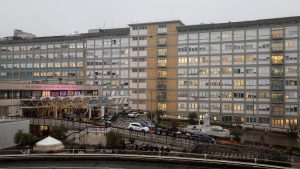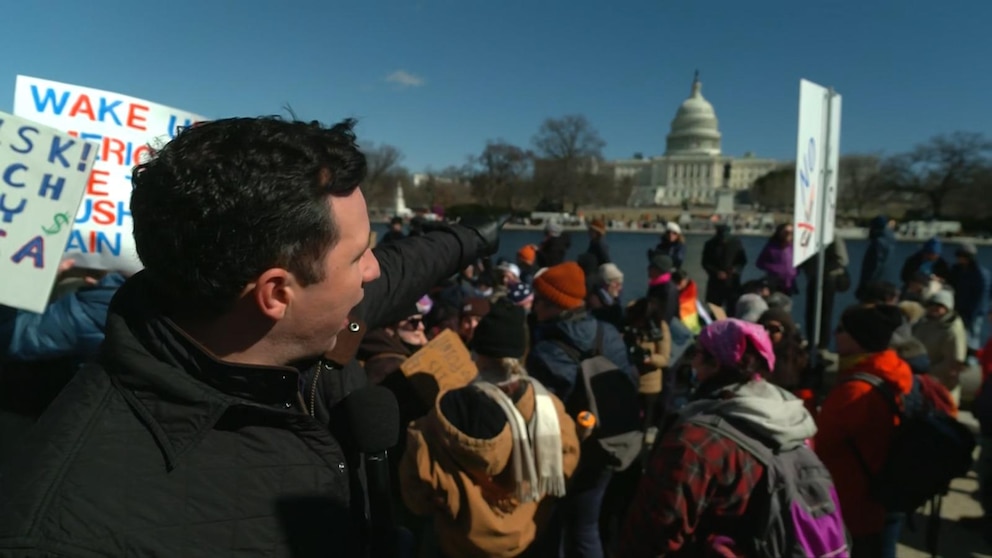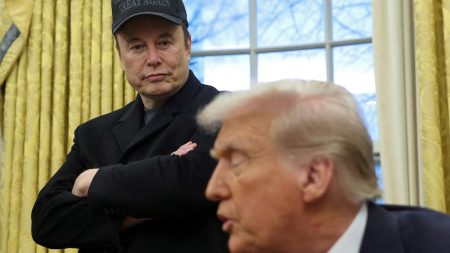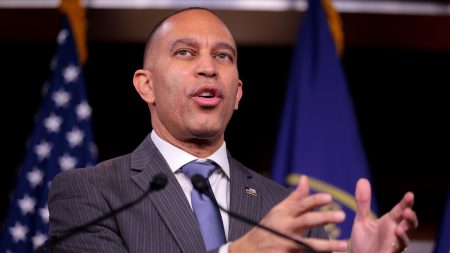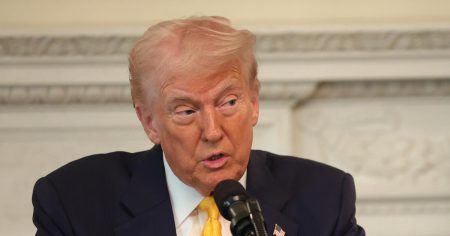Demonstrators Protest Mass Government Layoffs Outside of US Capitol
Thousands of demonstrators gathered outside the United States Capitol in Washington, D.C., to protest the recent wave of mass government layoffs that have left countless public servants without jobs. The protest, which was organized by a coalition of labor unions and advocacy groups, aimed to draw attention to the devastating impact of these layoffs on both the employees and the communities they serve. The demonstrators, many of whom were former federal employees, held signs that read "Stop the Layoffs" and "Protect Public Service" while chanting slogans calling for government accountability and action.
The protesters argued that the layoffs, which were implemented as part of a broader effort to reduce government spending, have disproportionately affected middle-class workers who have dedicated their careers to serving the public. Many of these employees have spent decades working in critical sectors such as healthcare, education, and national security, and their sudden termination has left them without income, health insurance, or retirement benefits. The demonstrators emphasized that these layoffs not only harm individual families but also weaken the government’s ability to provide essential services to citizens.
The Human Cost of Mass Layoffs
The human cost of the mass layoffs was a central theme of the protest. Many of the demonstrators shared personal stories of how the layoffs have affected their lives. One protester, a single mother who worked as a federal employee for over 15 years, tearfully explained how she is now struggling to make ends meet and provide for her children. Another demonstrator, a veteran who served in the military before transitioning to a government job, expressed his frustration at being laid off after years of service to his country. These personal accounts highlighted the emotional and financial toll of the layoffs on individuals and families.
The protesters also pointed out that the layoffs have a ripple effect on the broader economy. Many of the laid-off workers are forced to reduce their spending, which can lead to job losses in the private sector as well. Small businesses that rely on government contracts or serve federal employees are particularly vulnerable. The demonstrators argued that the short-term savings from the layoffs are far outweighed by the long-term economic and social consequences.
The Role of Government and Public Service
The protest also served as a reminder of the important role that government employees play in society. Public servants are responsible for delivering essential services, from processing Social Security checks to ensuring the safety of food and drugs. They also play a critical role in responding to national emergencies, such as natural disasters and public health crises. The demonstrators emphasized that these workers are not just employees; they are the backbone of the government’s ability to function effectively.
By targeting these workers with mass layoffs, the government is not only harming individuals but also undermining its own ability to serve the public. The protesters called on lawmakers to reconsider the layoffs and find alternative solutions to reduce spending that do not involve cutting essential public services. They also urged Congress to pass legislation that would provide financial support to laid-off workers and protect their benefits.
The Broader Implications for Public Service
The protest outside the U.S. Capitol was not just about the layoffs themselves but also about the broader implications for public service. The demonstrators argued that the layoffs send a discouraging message to anyone considering a career in government. At a time when the government is facing numerous challenges, from climate change to cybersecurity threats, it is more important than ever to attract and retain talented and dedicated public servants. By failing to support its employees, the government risks losing the expertise and experience needed to address these challenges effectively.
The protesters also criticized the lack of transparency and accountability in the layoff process. Many of the laid-off workers reported that they were given little notice and no clear explanation for why they were being let go. This lack of communication has added to the sense of uncertainty and insecurity among federal employees. The demonstrators called on government leaders to be more transparent about their decision-making process and to engage in meaningful dialogue with workers and their representatives.
A Call to Action
As the protest came to a close, the demonstrators issued a call to action, urging lawmakers and government leaders to take immediate steps to address the crisis. They demanded that the government reinstate the laid-off workers and work with labor unions to find alternative solutions to reduce spending. They also called on the public to show their support for federal employees by contacting their elected representatives and expressing opposition to the layoffs.
The protest outside the U.S. Capitol was a powerful reminder of the importance of standing up for workers’ rights and the vital role that government employees play in society. It also highlighted the need for a more compassionate and sustainable approach to managing government resources. By listening to the voices of these demonstrators, lawmakers have an opportunity to make a positive difference in the lives of thousands of families and to ensure that the government is equipped to meet the challenges of the future.
Conclusion
The protest outside the U.S. Capitol was a testament to the resilience and determination of federal employees who are fighting for their jobs and their futures. The mass layoffs have caused immense hardship for these workers and their families, and the demonstrators made it clear that they will not go quietly into the night. By sharing their stories and demanding action, they hope to inspire change and ensure that the government remains a place where dedicated public servants can thrive. The outcome of this protest will have far-reaching implications not just for these workers but for the entire nation.


